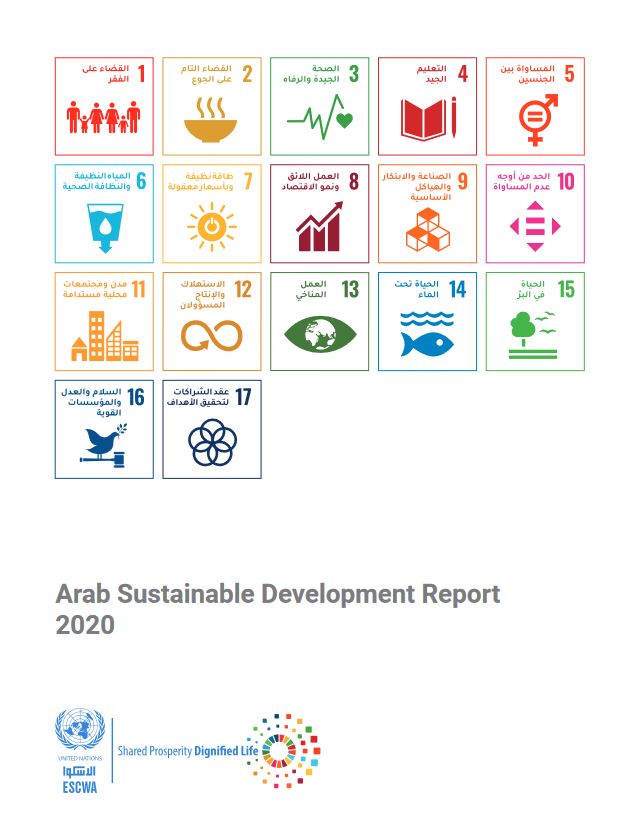 8 July 2020 – At a recent webinar on the Region’s response to COVID-19, organized by the Economic and Social Commission for Western Asia (ESCWA) and WHO, the WHO Regional Director for the Eastern Mediterranean Dr Ahmed Al-Mandhari said that the COVID-19 pandemic had presented an opportunity for greater collaboration between all sectors to work together on achieving the ambitious targets of the Sustainable Development Goals (SDGs) for 2030, noting that currently the Region was a long way from achievement of many of the health-related goals.
8 July 2020 – At a recent webinar on the Region’s response to COVID-19, organized by the Economic and Social Commission for Western Asia (ESCWA) and WHO, the WHO Regional Director for the Eastern Mediterranean Dr Ahmed Al-Mandhari said that the COVID-19 pandemic had presented an opportunity for greater collaboration between all sectors to work together on achieving the ambitious targets of the Sustainable Development Goals (SDGs) for 2030, noting that currently the Region was a long way from achievement of many of the health-related goals.
The Executive Director of ESCWA Dr Rola Dashti discussed the impact of the COVID-19 pandemic on progress towards the Agenda for Sustainable Development following the launch of the Arab Sustainable Development Report in April 2020. The report offers a situation analysis of the 17 SDGs in the Arab region and captures the enormity of the challenges facing Arab countries. As such, it supports the efforts of governments and stakeholders by assessing gaps, highlighting obstacles, and identifying critical entry points.
A panel comprising the Minister of Health of Lebanon, the Regional Directors of UNICEF and the United Nations Population Fund and the Director-General’s Special Envoy for COVID-19 described how the pandemic was exacerbating many of the Region’s health challenges and reversing recent health gains ‒ reducing immunization coverage and increasing mortality from non-COVID-19-related diseases, as resources were diverted to address COVID-19. It has also revealed the disparities in our societies and showed that the most vulnerable ‒ older people, low-income workers, refugees, migrants and slum dwellers ‒ have been the hardest hit, both by the disease itself and by its accompanying economic and social disruption. It is increasing poverty and inequalities on a global scale and highlighting challenges across all sectors. It is impacting food security, employment, education and increasing levels of domestic violence against women and girls.
The report highlights some of the root causes that undermine achievement of the health-related SDGs, including fragmented health systems, high out-of-pocket expenditure and weak intersectoral engagement. The pandemic has highlighted the urgent need to build the resilience and inclusiveness of health systems in the Region, many of which had already been weakened by conflict, sanctions, disease outbreaks and humanitarian catastrophes.
COVID-19, however, has also brought opportunities to advance public health amid the complexities of the Region. Countries have been able to demonstrate innovative action to suppress the spread of this disease and protect their populations. WHO has emphasized the importance of adopting whole-of-government approaches and investing in public health in all countries of the Region. Strong health systems can also be a driver of economic growth by improving people’s opportunities for economic participation. Health system spending contributes to better health outcomes and supports societal well-being by enhancing social protection and reducing impoverishment associated with ill health. The health system is also an important component of the macroeconomy, both as an industry that provides a large number of jobs, and as a key determinant of a productive labour force.
This webinar was the first in a series on ESCWA’s Arab Sustainable Development Report 2020. The following agencies contributed to the report: ESCWA, WHO, United Nations Educational, Scientific and Cultural Organization, United Nations Development Programme, United Nations Enviroment Programme, United Nations Population Fund, United Nations Industrial Development Organization, UN-Habitat, the Office of the United Nations High Commissioner for Human Rights, United Nations Children Fund, United Nations Office for Disaster Risk Reduction, UN Women.
Read the Arab Sustainable Development Report 2020


